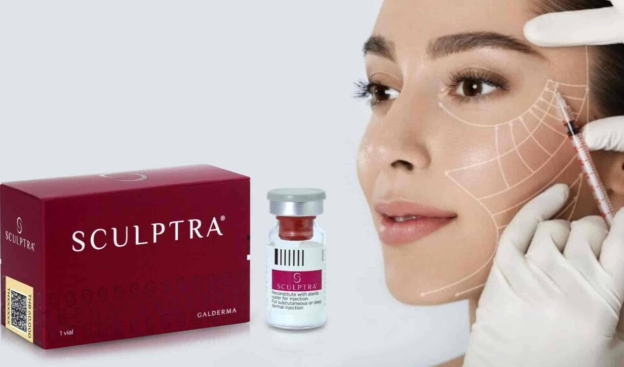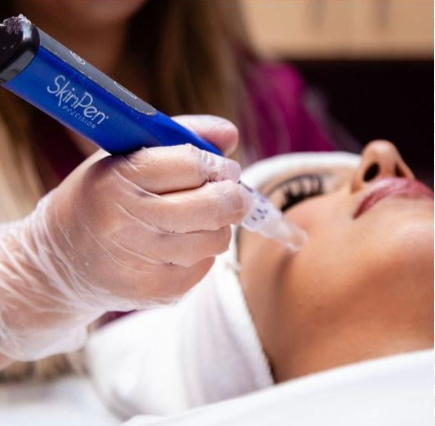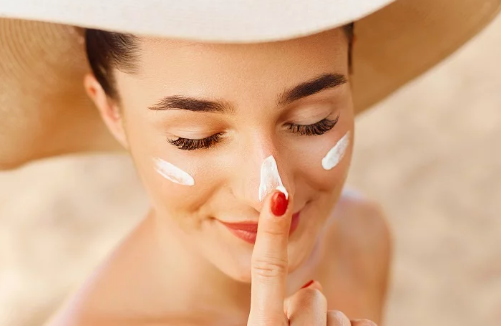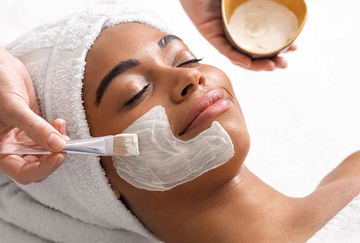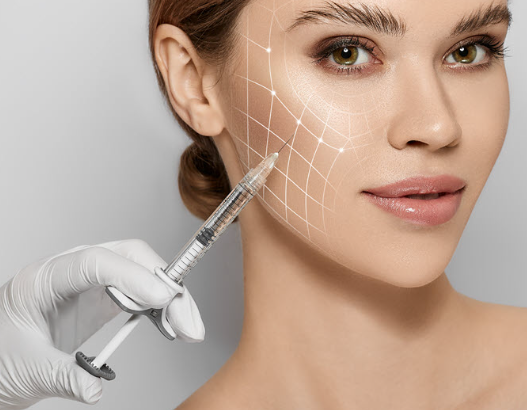Safeguarding Your Skinvestment.

Am I too good for sunscreen?
Sunscreen, the unsung hero of skincare, is often underestimated despite its vital role in protecting our skin from harmful ultraviolet (UV) rays.
Today, lets dive into the importance of wearing sunscreen, the different types available in the market, and how to choose the perfect sunscreen for your unique needs. Sunscreen is a non-negotiable step for maintaining healthy and youthful skin. By understanding the importance of sunscreen, not only will you be able to maintain your youthful appearance for much longer, but you will also find its imperative to pair post treatment.
Sunscreen is not just a summertime companion; it should be a year-round essential in everyone's skincare routine and here's why:
- Shields against UV rays: Sunscreen forms a protective barrier that helps prevent sunburns, premature aging, and reduces the risk of skin cancer caused by UV radiation.
- Prevents sunspots and discoloration: Regular use of sunscreen minimizes the appearance of sunspots, hyperpigmentation, and uneven skin tone, keeping your complexion radiant.
- Anti-aging properties: Sunscreen helps fight against the damaging effects of UV rays, such as wrinkles, fine lines, and sagging skin, keeping you looking youthful.
But, which should I choose?
With a plethora of options available, selecting the right sunscreen can be overwhelming. Here are the three primary types to consider:
- Chemical sunscreens: These sunscreens contain organic compounds that absorb UV rays and convert them into heat, providing broad-spectrum protection. They are lightweight, blend easily, and are suitable for everyday use.
- Physical sunscreens: These sunscreens, also known as mineral sunscreens, contain active ingredients like zinc oxide or titanium dioxide. They create a physical barrier that reflects and scatters UV rays. Physical sunscreens are ideal for sensitive skin and offer immediate protection upon application.
- Combination sunscreens: These sunscreens combine both chemical and physical filters to provide a balanced approach to sun protection. They offer broad-spectrum coverage and are often preferred for their lightweight texture.
Finding the ideal sunscreen for your specific needs involves considering various factors. Here's a guide to help you make an informed choice:
- Sun Protection Factor (SPF): Look for sunscreens with an SPF of 50 or higher to ensure effective protection. Remember, higher SPF doesn't mean exponentially more protection.
- Broad-spectrum coverage: Ensure the sunscreen provides protection against both UVA and UVB rays. It's even becoming exponentially more common to look for sunscreens with built-in blue light protection as well. Contrary to popular belief, continuous exposure to cell phone and computer screens can damage our skin!
- Skin type: If you have oily skin, opt for lightweight, oil-free formulations. For dry or sensitive skin, choose sunscreens with added moisturizers and soothing ingredients.
- Water resistance: If you're planning outdoor activities or swimming, select a water-resistant sunscreen to maintain protection despite perspiration or water exposure.
- Texture and finish: Consider your preference for a matte, dewy, or invisible finish, as well as the texture that suits your skin type and makeup routine.
- Additional features: Some sunscreens offer extra benefits like antioxidants, anti-pollution properties, or tinted formulas. Choose accordingly based on your desired features.
Sunscreen plays a crucial role in relation to cosmetic procedures, acting as a key element in post-treatment care and long-term skin health. Here's why sunscreen is essential in the context of cosmetic procedures:
Protection from UV Rays:
Many cosmetic procedures, such as chemical peels, laser treatments, and microdermabrasion, can leave the skin more vulnerable to UV radiation. Sunscreen acts as a shield, protecting the treated skin from the harmful effects of the sun's rays, which can lead to hyperpigmentation, inflammation, and delayed healing.
Minimizing Post-Treatment Complications: After undergoing cosmetic procedures, the skin is often more sensitive and susceptible to sun damage. Applying sunscreen regularly helps minimize the risk of adverse reactions, such as redness, swelling, or blistering, which can be triggered by sun exposure during the healing process.
Preventing Hyperpigmentation: Many cosmetic treatments aim to address issues like uneven skin tone, melasma, or dark spots. Sunscreen is essential in preventing the recurrence or worsening of these conditions by protecting the skin from UV-induced pigmentation. Consistent sunscreen use ensures the longevity and effectiveness of cosmetic procedures targeting skin discoloration.
Preserving Long-Term Results: Cosmetic procedures, such as dermal fillers, botox, or facelifts, often involve improving the appearance of wrinkles, lines, and sagging skin. Sun exposure without proper protection can accelerate the breakdown of collagen and elastin, diminishing the longevity of these treatments. Sunscreen helps maintain the results of cosmetic procedures by safeguarding the skin from environmental damage.
Overall Skin Health
Sunscreen is a vital component of everyday skincare, regardless of whether one has undergone cosmetic procedures. By protecting the skin from harmful UV rays, sunscreen helps prevent premature aging, sunburns, and reduces the risk of skin cancer. By incorporating sunscreen into a skincare routine, individuals can promote long-term skin health and maintain the benefits of cosmetic procedures.
So, there you have it! Sunscreen is indispensable when it comes to cosmetic procedures. It provides vital protection against UV rays, minimizes complications, prevents hyperpigmentation, preserves long-term results, and promotes overall skin health. Embracing sunscreen as a post-treatment essential will help you maintain the benefits of your cosmetic procedures and enjoy healthy, radiant skin for years to come.
Follow us
We will get back to you as soon as possible.
Please try again later.


